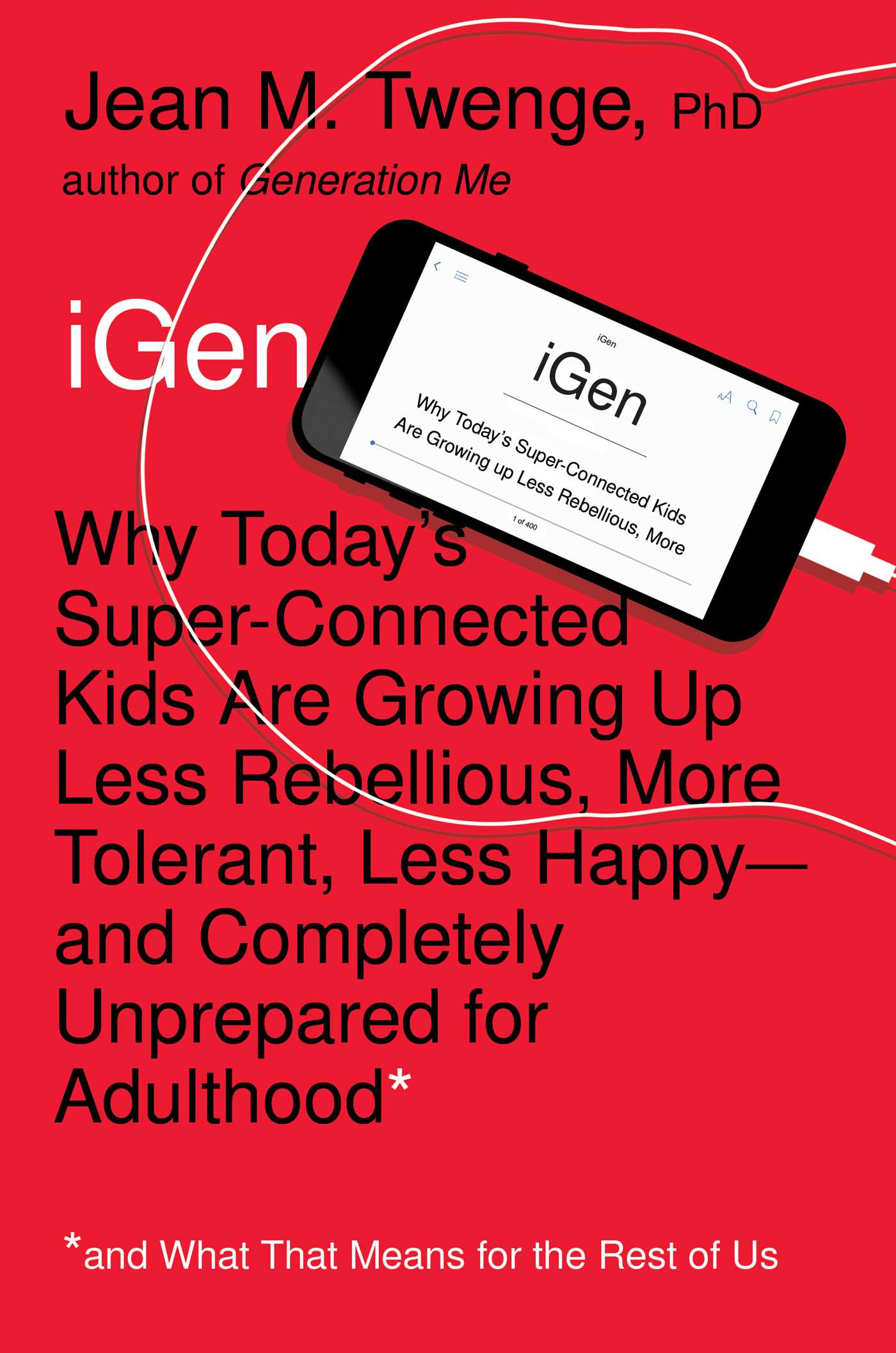 For several years, educators and other who care about your people have been hearing about “the Millennials,” which is the name given to the young people who were in school around the turn of the century. My children (who were born in 1990 and 1994) are firmly in the Millennial generation. Jean Twenge, a psychologist from San Diego State University, recently published iGen: Why Today’s Super-Connected Kids Are Growing Up Less Rebellious, More Tolerant, Less Happy–and Completely Unprepared for Adulthood–and What That Means for the Rest of Us, in which she concludes today’s young people (she uses example of people between 11 and 23 in her book which was published in 2017) are significantly different from the Millennials, and she labels them iGen.
For several years, educators and other who care about your people have been hearing about “the Millennials,” which is the name given to the young people who were in school around the turn of the century. My children (who were born in 1990 and 1994) are firmly in the Millennial generation. Jean Twenge, a psychologist from San Diego State University, recently published iGen: Why Today’s Super-Connected Kids Are Growing Up Less Rebellious, More Tolerant, Less Happy–and Completely Unprepared for Adulthood–and What That Means for the Rest of Us, in which she concludes today’s young people (she uses example of people between 11 and 23 in her book which was published in 2017) are significantly different from the Millennials, and she labels them iGen.
Twenge observes, iGen is distinct from every previous generation in how it members “spend their time, how they behave, and their attitudes… they socialize in completely new ways.” While each generation differs in these ways, she continues, “they are obsessed with safety, fearful of their economic future, and have no patience for inequality” (p. 3). While these characteristics may seem benign, Twenge also notes this generation experiences mental health problems at an alarming rate and are much more emotionally vulnerable compared to earlier generations.
She attributes these characteristics of the iGen to the central role social media and smart phones play in their lives. These young people are much more likely to mediate all social interaction through social media and to be “together alone” sitting in their bedrooms interacting on their phones. In one interesting study reported in the book, young people who “took a break” from social media for one week reported feeling less loneliness, sadness, and depression compared to those who continued the social media use.
While this generation was clearly affected by the Great Recession and other social and political situations and events, the dominant factors in this generation’s experience is social media and mobile phones. With her thorough treatment of evidence from many sources Twenge reasonably argues that the relationship between smart phones and ubiquitous social media is causative, not only correlational; the alarming changes we see coincided with and were caused by these technologies.
Educators should clearly be concerned about this generation. They are not experiencing many of the social situations in which they learn to be adults; but adults and mediating those experiences is not going to solve the problem. It is not unusual for individual in the iGen to report they graduated from high school without ever having attended a party in which there were no adults in attendance. This may provide a safe environment for them to socialize, but it does not allow them to interact independent and without oversight. This is just one example of the evidence that iGen is growing up much more slowly than earlier generations.
As an educational technologist, I appreciate the potential of smart phones, laptops, and other devices in teaching and learning. I am, however, rethinking the role of these devices in classrooms. The research is clear. Humans cannot multitask; constant access to social media is not healthy for adolescent brains. Reading, writing, complex and creative thinking are essential skills. Being social adept and emotionally stable is even more essential. For iGen to develop into highly-functioning adults (yes, I recognize the bias implicit in that statement, but Twenge also poses the question “What can we do to ‘save’ iGen?”) they must experience school and other social situations without the distraction of digital devices.
During a completely unrelated conversation earlier today, a student quipped, “be careful of what you wish for, you just might get it.” For decades, we wished for access to computers for our students. Now we have it. It is time school leaders assume a more active role in modeling and teaching and managing schools so that the iGen has time away from digital devices.